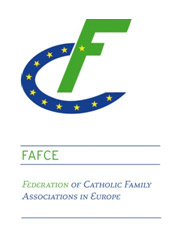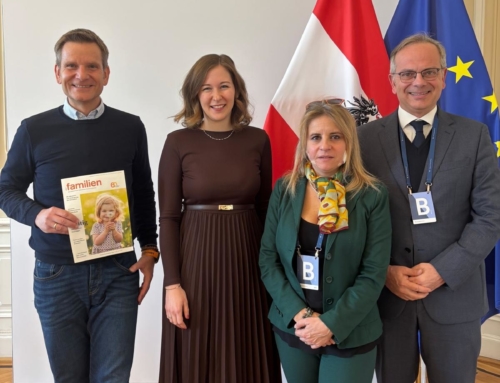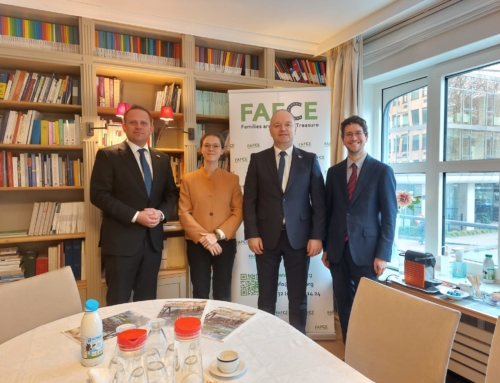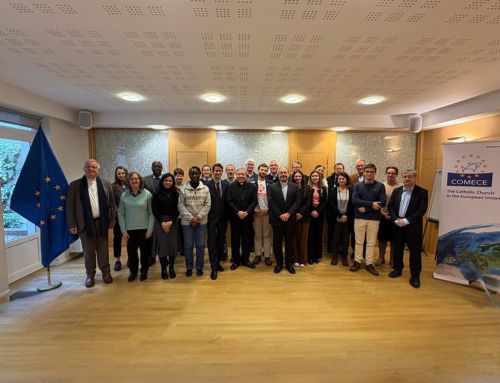FAFCE Board Resolution
Families are the front line in the pandemic
Online Board Meeting, 6 May 2020
In the context of the current pandemic, families are in the front line. The dislocation of the social fabric is now reduced to its minimum, its center and its starting point: the family. The lockdown requires the family to be the one responsible in ensuring the provision of their basic necessities, while ensuring at the same time the care for their children and their education. The current adversity is thus highlighting to all the importance of the family as the centre of the society. FAFCE Members, gathered via an online videoconference for their 2020 Spring Board Meeting, have issued the following Resolution:
Recalling FAFCE’s 20th Anniversary Declaration – Families’ are Europe’s Treasure and building block for the future (Rome, 31 May 2017), calling on the Governments of the European States to promote and create family policies at the national level and to promote family friendly policies;
Recalling its Board Resolution for a Demographic Spring (Vienna, 13 April 2018), asking to “Implement a policy that recognizes the unique, fundamental and irreplaceable position of the family in society and considers it as the first “enterprise”, by which the desire of life for our continent is expressed not only through economic initiatives but especially by the raising of children”;
Recalling its Board Resolution on Rebuilding Europe Restarting from the Family (Malta, 15 May 2019), inviting all European families to “be protagonists of innovative family policies, considering the family as the generative nucleus which gives life to all sectors of the society, in relation to education, economy and employment”;
Recalling its Board Resolution on a Call for a European Natality Pact (Brussels, 9 October 2019), calling all the European decision-makers “to work for a society where families get a fair financial recognition for their service and contribution to society, to ensure that families have supporting infrastructures and enough time together, so that they can realize their desire for children”;
our Board invites all the European decision-makers to make further efforts to support families during and after the COVID-19 outbreak, ensuring that they are supported at the level of their contribution to our communities, starting from the following points:
- By putting pressure on financial institutions to ensure a solidarity between European Member-States and by encouraging banks to facilitate the lending possibilities for families, which can participate to help the economic recovery of Europe;
- By promoting the implementation of short-time work allowances that would take into account the composition of the household rather than the individual circumstances of each worker: families should not be treated differently to the aid provided to workers or enterprises.
- By providing concrete solutions in the context of the lockdown for parents, who struggle to reconciliate their work with their family responsibilities, which today even include the schooling of their children, through adequate flexible working arrangements and emergency childcare facilities; at the same time, no differentiation should exist between all kinds of public schools, at all times respecting the freedom to educate as parent s might choose.
- By always respecting the human dignity of all and by raising awareness of the richness of elderly people for our communities: they are the first victims of the current pandemic, and their role as grandparents and active members of our families should be duly valued and promoted.
- By effectively investing in the family and in its human and social capital to move away from the crisis and creating a new starting point for Europe: epochal crises require historic choices, this is the moment to rethink the way we work, the way we take care of elderly people, the way we value the role of the family and the different structures of solidarity in Europe.










